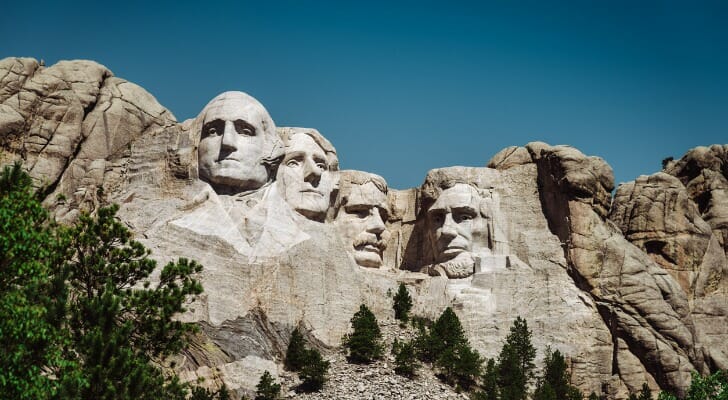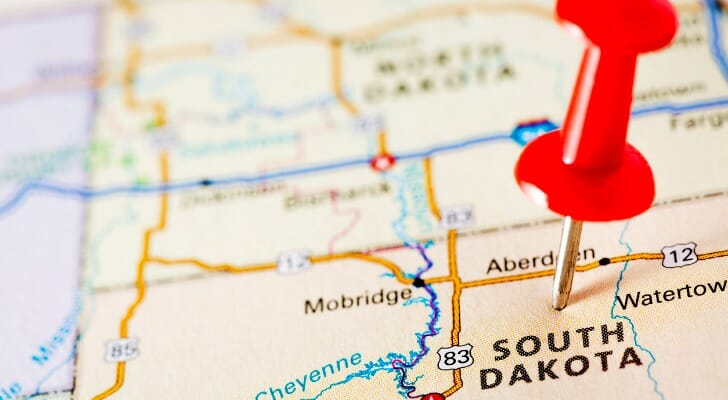 Normally when you hear the word tax haven, the typical places spring to mind. The Cayman Islands, Switzerland, Panama and the Bahamas are all tax havens, but over the course of the past decade South Dakota has joined their ranks as one of the world’s top destinations for stashing assets and avoiding taxes. There are currently hundreds of billions of dollars worth of assets squirreled away in South Dakotan trusts that generate no tax revenue for the state or federal government, and these assets are functionally untouchable by anyone who may have a legitimate claim to them, such as creditors or ex-spouses. The state has been thrust into the spotlight recently with the leaks of the Pandora Papers that revealed a great deal about who actually uses these South Dakotan trusts.
Normally when you hear the word tax haven, the typical places spring to mind. The Cayman Islands, Switzerland, Panama and the Bahamas are all tax havens, but over the course of the past decade South Dakota has joined their ranks as one of the world’s top destinations for stashing assets and avoiding taxes. There are currently hundreds of billions of dollars worth of assets squirreled away in South Dakotan trusts that generate no tax revenue for the state or federal government, and these assets are functionally untouchable by anyone who may have a legitimate claim to them, such as creditors or ex-spouses. The state has been thrust into the spotlight recently with the leaks of the Pandora Papers that revealed a great deal about who actually uses these South Dakotan trusts.
While tax havens like Switzerland may seem like a tool for the ultra wealthy, there are ways you can potentially take advantage of the Mount Rushmore State’s auspices yourself — even without being based there. If you’re looking for help with tax planning, whether by taking advantage of South Dakotan trusts or otherwise, it may also be a good idea to speak with a financial advisor.
Why Is South Dakota a Tax Haven?
The roots of South Dakota’s status as a global tax haven can be linked back to the 1980s when the state began deregulating financial services. In 1981, the state legislature took away limits for credit card interest rates that existed elsewhere in the country. Since then, the state has become even more financially deregulated, and in a wider variety of ways. On top of it all, the state has no income tax, inheritance tax or capital gains tax either.
In 1983, the state began allowing perpetual trusts. A perpetual trust functions much like any other trust, with the main caveat being that money can remain in the trust for decades without being subject to inheritance tax as it’s passed down. After that, the state passed a series of laws that seal court documents involved in setting up the trust. Without leaks like the Pandora Papers, it was impossible to know who owned a South Dakotan trust through traditional avenues. Expanded laws around secrecy make South Dakotan trusts particularly attractive to anyone trying to hide assets, as governments can’t tax assets that they can’t see. On top of what South Dakota itself is doing, the U.S. is a notably absent signee of the Common Reporting Standard (CRS), which helps governments inform each other about assets held by foreigners.
How Does a South Dakotan Trust Work?

South Dakotan trusts are the perfect tool for many looking to hide their assets from prying eyes, shelter them from taxes or both. They don’t function too differently from trusts in other states, but there are important aspects to note. First and foremost, the Republican-controlled state legislature continues to pass laws that allow for extreme privacy, as mentioned above. That way, it’s almost impossible to see who owns the assets in a South Dakotan trust, let alone try to lay claim to them.
Perhaps the most important aspect of the South Dakotan trusts is the fact that it’s easy for people involved in the trust to claim that the assets inside aren’t theirs. The settlor, who’s typically the one trying to secure their assets, opens a South Dakotan trust and deposits his or her assets. The person then names a beneficiary of the trust as well as a trustee.
From there, those involved can claim that they don’t actually hold the assets. The settlor can claim he has no involvement because that person doesn’t have the money himself. The beneficiary can similarly say that the assets are in a trust run by someone else, and the trustee can claim to be merely managing the trust. What’s more, South Dakota has laws that state the beneficiary and settlor of a trust can be the same person, making things even easier for anyone looking to shelter assets.
How Can You Use a South Dakotan Trust to Your Advantage?
It’s common to think that tax shelters and tax havens like Switzerland, Panama and now South Dakota are off limits to everyone other than the rich and famous. However, this unassuming U.S. state is showing no signs of slowing down the trust industry that has made it famous – and it’s easier to take advantage of than you might think.
The main difference when it comes to South Dakotan trusts is the set of rules surrounding who can see and lay claim to your assets. If you’re worried about prying eyes and hands, you might want to think about setting up a South Dakotan trust – that is, if you’re untroubled with any possible ethical questions about this practice.
Remember, you don’t need to open a trust in South Dakota to take advantage of the benefits that come with a trust. Setting up a trust is something that many people do from all types of financial backgrounds. You can use a trust to determine where your assets will go after you die or even during the course of your life. These trusts can also help your beneficiaries avoid headaches, fees and taxes.
How To Open a South Dakotan Trust
Setting up a South Dakotan trust isn’t too difficult, though there are some requirements you’ll need to meet. There is a non-refundable application fee of $5,000, and a trust must have at least $200,000 of assets to receive a South Dakota charter. The company must file a 12-page application, and once the trust is chartered, there is an annual state fee of 7 cents per $10,000 of assets in the trust. However, as noted earlier, you don’t need a South Dakota PO box or a South Dakota address. In fact you don’t need to go to South Dakota or have visited South Dakota ever in your life.
Bottom Line

South Dakota’s status as a world-renowned tax haven has been in the making for decades, and the solidly red state is showing no signs of reversing course anytime soon. As one of the world’s top tax havens, important people from around the world are opening trusts in the Mount Rushmore State, often without ever setting foot in the state or even being able to locate it on a map. While the ethics of tax shelters are certainly up for debate, there are ways for people other than just the ultra-wealthy to get in on the benefits of opening a South Dakotan or other trust. But whether you’re trying to avoid taxes or keep your assets away from other prying eyes and hands, South Dakota could be an attractive option.
Tips for Tax Planning
- You don’t need to open up a South Dakotan trust to be smart with your assets during tax season. While a tax accountant is a good resource, a financial advisor can help you think about your tax situation more holistically. Finding a qualified financial advisor doesn’t have to be hard. SmartAsset’s free tool matches you with up to three financial advisors in your area, and you can interview your advisor matches at no cost to decide which one is right for you. If you’re ready to find an advisor who can help you achieve your financial goals, get started now.
- If you’re going at your taxes and tax planning alone, it pays to be prepared for what might come your way. SmartAsset aims to have its readers covered by offering several free online resources to help during tax season. For example, check out our retirement taxes calculator today.
Photo credit: ©iStock.com/franckreporter, ©iStock.com/shapecharge, ©iStock.com/ilbusca